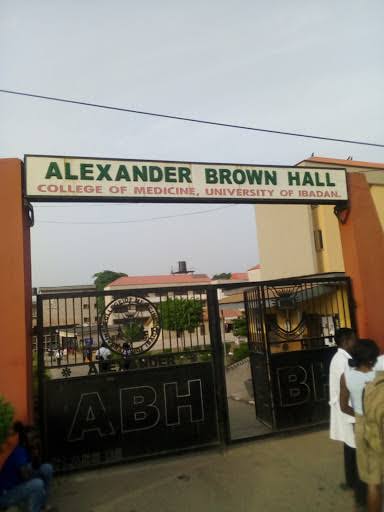By Rachel Dada

On Tuesday, 26th September 2023, residents of the Alexander Brown Hall Community, and the entire University College Hospital at large, were plunged into darkness. As it is commonplace in this part of the world, they waited for power to be restored. However, hours rolled into a day, a day into two days, two days into four days… on and on it went until a week had gone by. It has now been eight days since the blackout at the University College Hospital began, and it has left medical students living in the Alexander Brown Hall distraught and struggling.
The blackout has affected students, patients and healthcare workers alike, and there is yet to be a definite timeline for the restoration of power. A circular released by the University College Hospital dated 28th September 2023, revealed that the cause of the blackout was a disconnection of the Hospital from the National Power Grid by the Ibadan Electricity Distribution Company (IBEDC), following a failure to settle debts owed by the hospital. While there is no official report from the institution about the amount owed, multiple reports, including this Sahara Reporters publication, suggest that the hospital owes a debt of about Six Hundred Million Naira, which they have racked up over the years, with a monthly bill of about Seventy-eight Million Naira. Interestingly, there was a similar occurrence earlier this year lasting about 9 days, for the same reason.
Regardless of the cause, the blackout has persisted for 10 days now, and has surpassed the previous record of 9 days. Amidst all of this, residents of Alexander Brown Hall, have been forced to live in a far from optimal environment.
While the Hall has a generator that can power the entire hall, ABH Press reports that the generator has not come on in over 2 years, largely due to an unavailability of diesel. Speaking with the Hall Chairperson, Mr Jesufemi Adeyeye, he stated that the University management is to supply the Hall with diesel and a letter has been written to that effect, but they are awaiting feedback. What the Hall has tried to do so far, is to use smaller generators to pump water in the mornings, for students to fetch water and have their baths. Regardless, this water supply is not only insufficient, it is also time-consuming to obtain, with the queues expectedly stretching very far. Hence, Brownites have been forced to travel distances to obtain water, if at all they are able to get. A major effect of this is how it affects sanitation. Some Brownites reportedly eat less and carefully to avoid or reduce the frequency with which they move their bowel, while others simply make a mess.
Patients are not left out of the struggle as some of those with elective surgeries have had to have them rescheduled, while others have had to seek care at an alternative facility. Some investigations that were previously obtainable within the hospital premises, now have to be done outside the facility. Healthcare workers themselves, have had to deal with the brunt of a lack of electricity supply in more ways than one. Although the hospital tries to power the generator to supply different areas of the hospital, this cannot be done for the entire day as it is expensive to run, nor can supply be made to the whole hospital complex. Consequently, priority is given to areas like the Intensive Care Unit, Labour Ward, and Accidents and Emergency. Most other wards are left in the dark for the most part and the not-so-friendly mosquitoes are sure to visit.
Amidst the blackout and its attendant crisis, students of Alexander Brown Hall have continued to go to school, struggling to find water and power each day. Some tour the priority wards of the Hospital complex at night, in the hopes that they will be able to charge their devices there. Others seek succour at the Engelbert Beyer Centre, a private hostel facility within the hospital premises that also turns on its generator for 2 hours each night. Notably, the most senior class of Dental Students (2k18 set), whose medical counterparts recently got inducted into the medical profession, just concluded their final professional exams, literally burning the midnight candle all the way. Other classes are not left out, as some are currently writing resit exams, while others have End of Posting tests.
The Hall Chairperson, Mr Jesufemi Adeyeye stated that although in the past, they had been able to pump water in the mornings and at night, the generator developed a fault so they will only be able to pump water in the mornings going forward. Since the same generator supplies the cafeteria where Brownites try to charge their devices when the generator is on, it will undoubtedly affect that as well. “Things are quite bad and we need the University Management to intervene as soon as possible as there are no other options for water or electricity near the hostel”, he added. It appears that if nothing is done soon, the already bad situation will only get worse.
In the end, one wonders when the blackout will eventually come to an end as even superheroes may die if the force against them is great enough. Can students be expected to continue to attempt to learn amidst these conditions? Will the blackout end before the week runs out? The Chief Information Officer of UCH, Obafunmilayo Adetuyibi informed Sahara Reporters that the Federal Government does not give the hospital any money for electricity bills, so the hospital will be forced to negotiate and find a solution to the situation at hand. One can only hope that for the sake of the students and the patients alike, they are successful in their efforts, and that too,as soon as possible.
